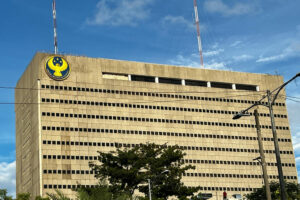THE BANGKO SENTRAL ng Pilipinas (BSP) has amended its guidelines for the Peso Real-Time Gross Settlement (RTGS) system to revise the penalties for erring participants.
In a memorandum, the central bank said it is adding supplementary policies on penalties and sanctions under the Peso RTGS rules.
“Depending on the gravity of the offense committed by a participant, the Bangko Sentral may impose penalties and sanctions,” it said.
These may include fines, suspension of the participant’s privilege to avail of the Intraday Settlement Facility, and suspension or termination of the participant’s access to the Peso RTGS payment system.
It added that repeat offenders “shall be meted with stiffer penalties and sanctions.”
The amended rules will be part of the Manual of Regulations for Payment Systems.
The monetary penalties go as high as P100,000 to as low as P200, depending on the type of bank and violation.
For example, one of the violations with the largest penalty is the failure to properly manage liquidity position as manifested by any of the following circumstances: queueing of a transaction for over 15 minutes, rejection of more than three transactions per day due to insufficient balance of settlement account, and cancellation of more than three transactions per day.
This type of violation will merit a penalty of P75,000 per incident for universal banks and Islamic banks.
The monetary penalties for other types of banks for the same violation are P65,000 for commercial banks, P30,000 for digital banks and thrift banks, and P20,000 for rural banks, and nonbanks with quasi-banking functions or nonbank electronic money issuers or other participants maintaining settlement accounts with the BSP.
Failure to establish a resilient, documented and tested business continuity plan and noncompliance with system enhancement requirements will also see universal banks, Islamic banks, and commercial banks getting slapped with the same penalties. Meanwhile, digital banks and thrift banks must pay 20,000, while rural banks will be charged P10,000 for the said violations.
Other violations include noncompliance with settlement timelines set by the BSP and failure to repurchase securities sold to the BSP under an extended Intraday Settlement Facility availment in excess of the allowable limit.
The amended rules also detail the monetary penalties on noncompliance with reporting standards, including delayed, erroneous and unsubmitted reports. Banks can be fined as high as P30,000 for an unsubmitted report, according to the rules.
The BSP could also impose fines ranging from P5,000 to P100,000 for other violations not included in the amended rules, non-compliance with applicable laws, as well as the “combination of violations, or multiple cases of the same violation.”
“Once the Bangko Sentral, through its appropriate department, ascertains that a participant has committed a punishable violation, it shall send a notice of violation with corresponding penalty to the participant,” it said.
“The participant shall justify within 15 calendar days from receipt of notice why it should not be penalized or sanctioned as indicated in the notice. The justification shall be signed by the President (or equivalent) of the concerned participant and sent to the Head of the appropriate Bangko Sentral department.” — Luisa Maria Jacinta C. Jocson
